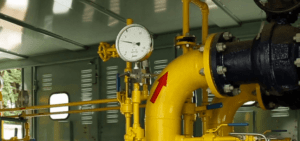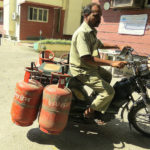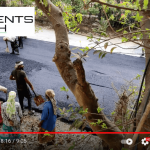Fire safety tips for Piped Natural Gas customers in HSR Layout
By SAVITHA SAMPATH
Piped Natural Gas (PNG) is available as an alternative to Liquid Petroleum Gas in many cities across India. PNG is preferred by many as it is cost-effective when compared to LPG. Gas Authority of India Limited (GAIL) has started work in HSR Layout on supplying PNG to industrial and a few residential areas and people have been asked to apply for it if they want the connection. Some residents have been getting it for many months now and many other residents are waiting for their connection for over a year now.
Piped natural gas, though not risky as compared to LPG, is also flammable. So, it becomes necessary for all of us in HSR Layout to be aware of the hazards that are related to PNG. Piped Natural Gas is methane. It is much lighter when compared to LPG. PNG is also flammable. Since it is also lighter than air and has a high dispersion rate than LPG, it is not as hazardous as LPG in case of a leakage.
Fire Safety precautions while using PNG
The precautions that need to be observed are almost similar to that of LPG. Here are the points that you should keep in mind while using piped natural gas.
Ventilation: Before using PNG, make sure the room has enough ventilation. Open the doors and windows, so that in case of any leakage, the gas would disperse quickly.
Leakage: A distinctive odour is added to the gas for easy identification. Also, if there is a hissing sound near a pipeline, it may indicate leaking natural gas.
If there is a leakage, close the valve that supplies gas to your stove and seek the help of your gas supplier. Do not light a match or a lighter or any naked flame. Do not move an electrical appliance or turn off or turn on an electrical appliance.
If you are going away for a long time, close all the valves that supply gas. This prevents accumulation of gas in your house.
Digging: Unlike LPG, PNG is supplied through underground gas lines that runs to your house. So, in case any digging work is taking place around your house, inform the gas company immediately. If you suspect any potential damage to the gas line, call the gas supplier immediately.
Asphyxiation: Prolonged exposure to natural gas may lead to carbon mono-oxide poisoning and eventually death by asphyxiation. If there is a yellow, large and unsteady flame in your gas burner or if there is a pungent odour when you are using the gas, then there could be a presence of carbon monoxide. In such cases, contact your supplier immediately. It is also advisable to install carbon monoxide indicators in your kitchen.
Maintenance: Maintenance plays a key role in preventing accidents due to leakage and exposure to carbon monoxide. Get your gas appliances checked regularly by a qualified technician from the gas company. If there is any damage or repair to the gas appliances, have this checked only by the qualified technician. Do not store or use any flammable products in the same room near the PNG. Such as LPG, paints, spray repellants, varnish, cleaning products, etc. This will prevent any accidental ignition. Never use PNG and LPG in the same place. PNG gas, like any other inflammable materials, needs us to be cautious and aware. It can be a boon and also a bane if we are not aware and careful. Treat all inflammable materials with utmost caution.
© Oorvani Foundation/Open Media Initiative. Also available online at Citizen Matters.





